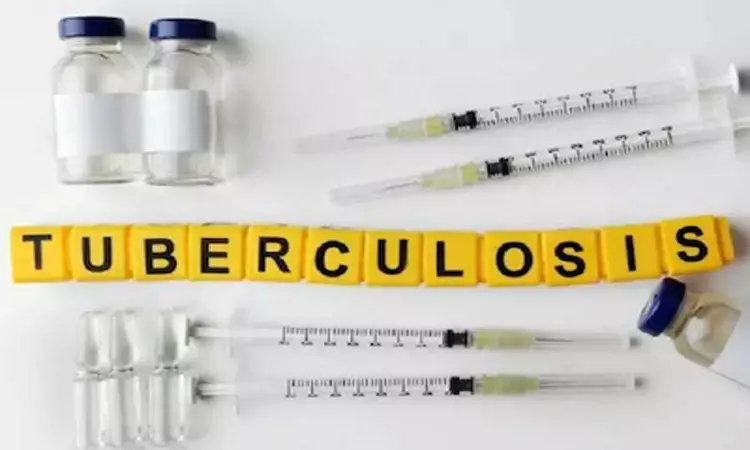- Home
- Medical news & Guidelines
- Anesthesiology
- Cardiology and CTVS
- Critical Care
- Dentistry
- Dermatology
- Diabetes and Endocrinology
- ENT
- Gastroenterology
- Medicine
- Nephrology
- Neurology
- Obstretics-Gynaecology
- Oncology
- Ophthalmology
- Orthopaedics
- Pediatrics-Neonatology
- Psychiatry
- Pulmonology
- Radiology
- Surgery
- Urology
- Laboratory Medicine
- Diet
- Nursing
- Paramedical
- Physiotherapy
- Health news
- Fact Check
- Bone Health Fact Check
- Brain Health Fact Check
- Cancer Related Fact Check
- Child Care Fact Check
- Dental and oral health fact check
- Diabetes and metabolic health fact check
- Diet and Nutrition Fact Check
- Eye and ENT Care Fact Check
- Fitness fact check
- Gut health fact check
- Heart health fact check
- Kidney health fact check
- Medical education fact check
- Men's health fact check
- Respiratory fact check
- Skin and hair care fact check
- Vaccine and Immunization fact check
- Women's health fact check
- AYUSH
- State News
- Andaman and Nicobar Islands
- Andhra Pradesh
- Arunachal Pradesh
- Assam
- Bihar
- Chandigarh
- Chattisgarh
- Dadra and Nagar Haveli
- Daman and Diu
- Delhi
- Goa
- Gujarat
- Haryana
- Himachal Pradesh
- Jammu & Kashmir
- Jharkhand
- Karnataka
- Kerala
- Ladakh
- Lakshadweep
- Madhya Pradesh
- Maharashtra
- Manipur
- Meghalaya
- Mizoram
- Nagaland
- Odisha
- Puducherry
- Punjab
- Rajasthan
- Sikkim
- Tamil Nadu
- Telangana
- Tripura
- Uttar Pradesh
- Uttrakhand
- West Bengal
- Medical Education
- Industry
Fidaxomicin could be repurposed and added to tuberculosis treatment arsenal

Research has found fidaxomicin, an antibiotic usually used to treat bowel infections, prevents growth of resistant strains of Mycobacterium tuberculosis (MTb) in the lab.
Published in the Journal of Medical Microbiology, the research found that fidaxomicin was more effective than existing tuberculosis (TB) medication at preventing growth of the bacterium that causes TB.
Researchers compared the activity of fidaxomicin and rifampicin, an antibiotic currently used to treat TB, against 72 different strains of MTb. Of these strains, 34 were resistant to multiple antibiotics. They found that fidaxomicin could prevent growth of all 72 strains at lower doses than rifampicin.
Both of the drugs tested work in a similar way and are in a group of antibiotics are known as RNAP inhibitors. These antibiotics target an enzyme called RNA polymerase, blocking it and preventing M. tuberculosis cells from reproducing.
Fidaxomicin is commonly used to treat Clostridium difficile (C. diff) infections. This is a bacterial infection of the bowel which usually causes diarrhoea. The researchers suggest that the antibiotic would need to be modified before use, to treat TB in vivo, as the drug in its current form targets the gastrointestinal tract instead of the lungs.
Rifampicin is a well-known frontline treatment for TB. There is increasing concern that antimicrobial resistance is becoming more common in MTb, with many strains resistant to several antibiotics. Over 90% of strains of multi-drug resistant MTb cannot be treated using rifampicin. Finding and developing affordable new antibiotics to treat MDR-TB is desperately needed.
An estimated 1.4 million people died of TB in 2019, and 10 million become unwell with the disease, including 1.2 million children. Very few antibiotics are effective against MTb, and as the bacteria become resistant to more and more antibiotics, TB is becoming harder and harder to treat.
The researchers hope to investigate the in vivo effects of fidaxomicin against TB using animal models.
https://www.microbiologyresearch.org/content/journal/jmm/10.1099/jmm.0.001324
Hina Zahid Joined Medical Dialogue in 2017 with a passion to work as a Reporter. She coordinates with various national and international journals and association and covers all the stories related to Medical guidelines, Medical Journals, rare medical surgeries as well as all the updates in the medical field. Email: editorial@medicaldialogues.in. Contact no. 011-43720751
Dr Kamal Kant Kohli-MBBS, DTCD- a chest specialist with more than 30 years of practice and a flair for writing clinical articles, Dr Kamal Kant Kohli joined Medical Dialogues as a Chief Editor of Medical News. Besides writing articles, as an editor, he proofreads and verifies all the medical content published on Medical Dialogues including those coming from journals, studies,medical conferences,guidelines etc. Email: drkohli@medicaldialogues.in. Contact no. 011-43720751


